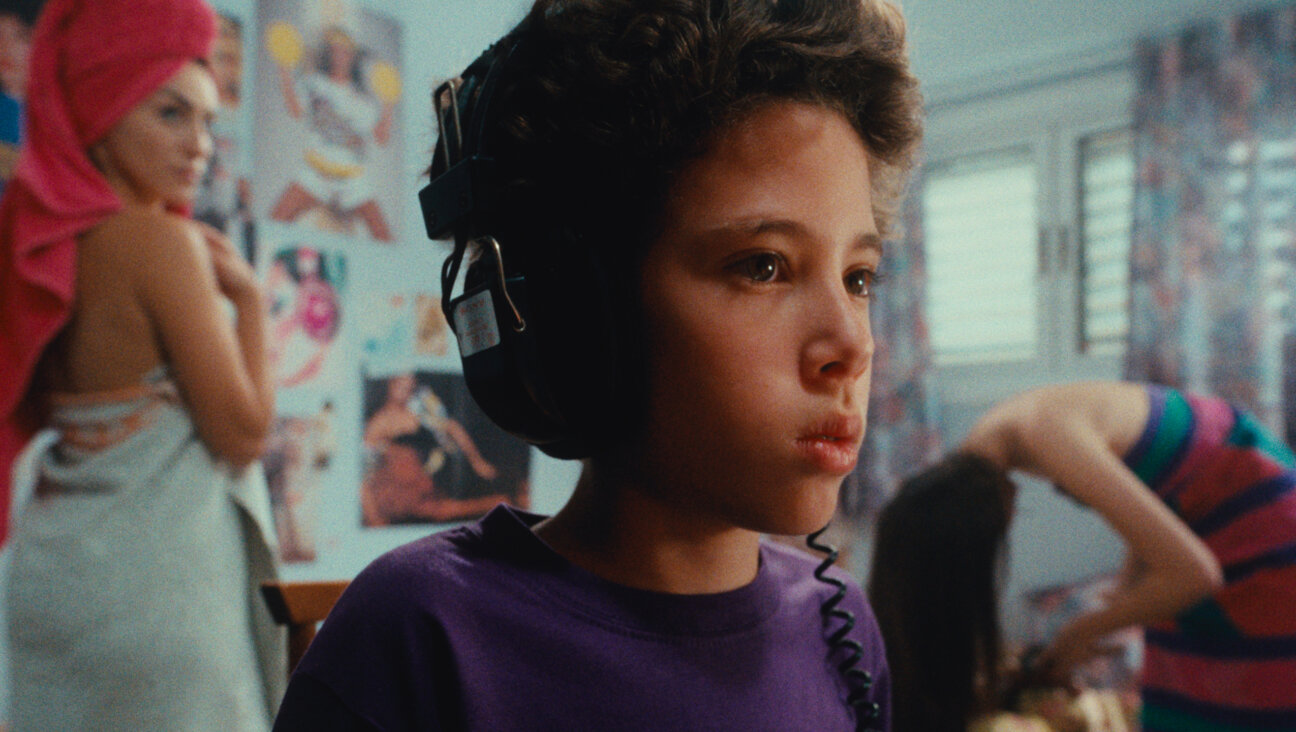In a rare Lumet comedy, Jews meet an unexpected landsman
Why the cab scene in ‘Bye Bye Braverman’ is still a riot
This essay is part of the Forward’s list of 125 greatest Jewish movie scenes. You can find the whole list and accompanying essays here.
Comedy was never Sidney Lumet’s strong suit. If there was any humor at all in his greatest films — such as “The Verdict,” “Network,” “Dog Day Afternoon,” “Serpico,” “The Pawnbroker” or “12 Angry Men” — it was typically served up as black and acidic as day-old diner coffee.
And yet, my father — whose deep love of absurd humor I share, either by blood or osmosis — has often spoken of Lumet’s 1968 comedy “Bye Bye Braverman” with the same profound affection (and even downright reverence) that he usually reserves for the likes of Mel Brooks’ “The Producers” or Woody Allen’s “Take The Money and Run.” Unlike those films, however, “Bye Bye Braverman” was never a staple of my early comedy diet; in fact, despite repeated paternal suggestions over the years, I didn’t actually get around to watching it until about two months ago. “I don’t want to spoil any of it for you,” my dad told me, when he learned that I’d acquired the DVD. “But once you’ve finished watching it, call me immediately and let me know what your favorite scene was.”
A film about four Jewish intellectuals — George Segal, Jack Warden, Joseph Wiseman and Sorrell Booke — who are repeatedly waylaid while trying to find a fifth’s funeral service in Brooklyn, “Bye Bye Braverman” was poorly received by most critics at the time of its release; Charles Champlin of the Los Angeles Times was one of the few to give it a (mostly) favorable review, and even he lamented that “the picture wobbles between insight and sight-gag, between true observation and a heavy-handed striving for ethnic jokes.” Lumet himself didn’t reflect kindly upon his first attempt at comedy, writing in his 1995 book “Making Movies” that, “It should have been a soufflé, but it turned out a pancake.”
“Bye Bye Braverman” unquestionably has its faults. The film’s pacing is weirdly uneven, the talented female cast members (Jessica Walter, Zohra Lampert and Phyllis Newman) are largely wasted on two-dimensional characters, and the dialogue — penned by Herbert Sargent with numerous lifts from the source material, Wallace Markfield’s satirical 1964 novel “To An Early Grave” — is heavy on Yiddish-derived punchline constructions like “So, I should suffer?” that sound hopelessly stagey and dated over a half-century later.
And yet, there’s still plenty to love about the film. Hidden beneath the rampant shtick are bittersweet ruminations on the nature of friendship, success and mortality. Boris Kaufman’s rich cinematography captures mid to late ’60s Manhattan in all its crumbling funkiness, yet still makes the borough seem like the height of modernity, efficiency and opportunity compared to the calcified old-world mazes of Brooklyn, which now seem like alien territory to these upwardly mobile Manhattanites. And in the constant comic bickering between the four pompous protagonists — over everything from egg rolls to singing groups to German cars, but essentially over nothing — we quite clearly have the roots of “Seinfeld.”
“Bye Bye Braverman” reaches its absurdly proto-Seinfeldian zenith in the scene where the four would-be mourners — driven by Booke in his prized Volkswagen Beetle — collide with a cab driven by Godfrey Cambridge at the corner of Brooklyn’s Eastern Parkway and Bedford Avenue. The cabbie, a Black man, asks the men if they’re Jewish, and they immediately go on the defensive. (“None of your business,” snarls Segal.) But then Cambridge reveals that he is Jewish, as well; and despite the accident, he is genuinely delighted by this unexpected opportunity to share a moment of fellowship, kvell over the fact that his son has scored a summer bellhop position at a Catskills resort, and express his profound relief that a doctor at Mount Sinai Hospital has diagnosed his wife’s recent cancer scare as nothing more than a swollen gland.
The fact that Cambridge enthusiastically peppers his utterances with even more Yiddish expressions and syntax than they do — he even carries a B’nai B’rith newsletter in his wallet — goes unremarked upon by the other men, who are charmed by the cabbie but are also in a hurry to get to the funeral. “What’s happening here involves the living,” Cambridge insists. “That’s more important!”
The only member of the mourning party unimpressed by Cambridge’s Yiddishkeit (or his learned understanding of pikuach nefesh, the importance of preserving human life above all else) is Booke, who is completely distraught that his precious car has been dinged for the first time. After unsuccessfully trying to flag down a patrol car and have Cambridge arrested, he goads the cabbie into a fight with a torrent of verbal abuse. Neither man is a born pugilist, however; Warden and Segal quickly separate the flailing combatants and proclaim the childish slap-fest a draw. “In my book, you’re still a meshugga,” Cambridge tells Booke, tenderly returning his glasses to his face and patting his cheek. “Do we need this?”
Licenses and registrations are exchanged, with Cambridge recommending the services of a “gonif” accident attorney. (“Is he good? Oy — let two A&P shopping carts collide, and right away somebody’s kid goes through medical school!”) The encounter ends with Cambridge reaching into his cab for a paper-bagged bottle of booze, which the men then pass around with joyous cries of “L’chaim!”
One could argue that the basic premise behind this scene — namely, the implied dissonance of a Black man being as Jewish as (or even more so than) white Jews of European descent — hasn’t aged well; after all, we’re (hopefully) more enlightened today about the existence of Jews of color. And while it’s true that Mel Brooks mined a similar vein with his Yiddish-speaking Native American chief in 1974’s “Blazing Saddles,” that joke was perfectly at home in a film specifically devoted to tweaking and upending Hollywood’s penchant for racial stereotyping.
At the same time, the “Braverman” scene still works, precisely because the main characters themselves are so unprepared for the encounter. If they’d collided with a white Jewish cabbie, a similar conversation might have ensued; but by bracing for what they expect will be a racially loaded confrontation, they leave themselves completely unguarded against the Jewish love offensive that Cambridge — whose warmth, comic timing and total commitment to the bit really carry the day — lays on them. Though he draws blood with an accidental blow to Booke’s face (which he immediately feels terrible about), Cambridge’s cabbie ultimately does greater damage to the somber and solipsistic bubble that the four men have wrapped themselves in, puncturing it with a welcome reminder of the joys of existence and brotherhood.
I phoned my father when the movie was over. “Godfrey Cambridge,” was all I said. “You are definitely my son,” he laughed.

















